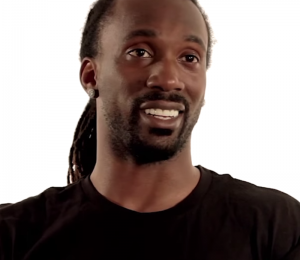
Katy Perry and Byzantine icons
By
Redeemer University College
|
January 17, 2017
Most folks are hard pressed to draw the connection between medieval art and the sashaying sharks of Katy Perry’s Super Bowl halftime show, but Dr. Matthew Milliner, professor of art history at Wheaton College, can do just that. His public lectures and writing, which span topics ranging from ancient Byzantine iconography to Salvador Dalí to The Walking Dead, are even more unusual, perhaps, because his actual goal is to illuminate gospel truth.
“Dr. Matthew Milliner is a savant,” says Dr. Robert Joustra, director of Redeemer’s Centre for Christian Scholarship, “at showing and telling the sacred stories that flow under and around the images and encounters we have every day.”
In our media-saturated age, we are surrounded by images as never before, and many of them need to be broken. One of the missions of contemporary art is to break images as much as to create them; but this mission has stalled. Perhaps, Milliner argues, an ecumenical coalition of Christians can do what contemporary art could not: liberate us from false images so that we can freshly encounter the image of the invisible God. Milliner will explore the idea of culture breaking as the latest lecturer in Redeemer University College’s prestigious World and Our Calling series produced by Redeemer University College.
Milliner’s talk, “Culture Breaking: The Image of God in an Image-Driven World”, is a much-anticipated addition to a series that explores the facets of the Christian calling to be engaged with our culture. Milliner’s talk will be held at Redeemer on January 25, 2017.
Milliner’s many accomplishments, both in academia and the public square, are also the reason that the Redeemer was proud to designate the scholar as the 2016 Emerging Public Intellectual Award (EPI) winner. The $5,000 award recognizes emerging talent within the Christian academy that is making a public impact. The award is sponsored and adjudicated by Redeemer and leading North American Christian think tanks Cardus, the Acton Institute and the Center for Public Justice.
“What made Dr. Milliner’s application stand out,” comments Ray Pennings, executive vice president of Cardus, “was the combination of impressive scholarship–both in terms of quantity and prominence of placement–with a real attempt to have impact beyond the scholarly world.” Milliner publishes widely in both academic and popular venues. He is also a two-time appointee to the Curatorial Advisory Board of the United States Senate.
In the past year, Milliner has spoken at the local mosque and joined panels promoting dialogue and cooperation organized by Muslim organizations and interfaith coalitions.
“In the Wheaton community, in Chicago and across the United States, this has been a very difficult year in which to navigate issues of religious pluralism and, more specifically, Muslim-Christian relations,” says colleague, and last year’s winner, Dr. Noah Toly. “Dr. Milliner has set an example for all of us.”
Milliner’s accolades are many, but his strategy for engaging people with sacred truths is simple–and close to home.
“If you stand outside the Art Gallery of Ontario with a placard announcing the gospel, you will probably be ignored, or even ridiculed. But, if you give a well-researched, enthusiastically delivered tour of the Christian themes of the paintings within the Art Gallery of Ontario, you will likely be thanked and applauded.”




